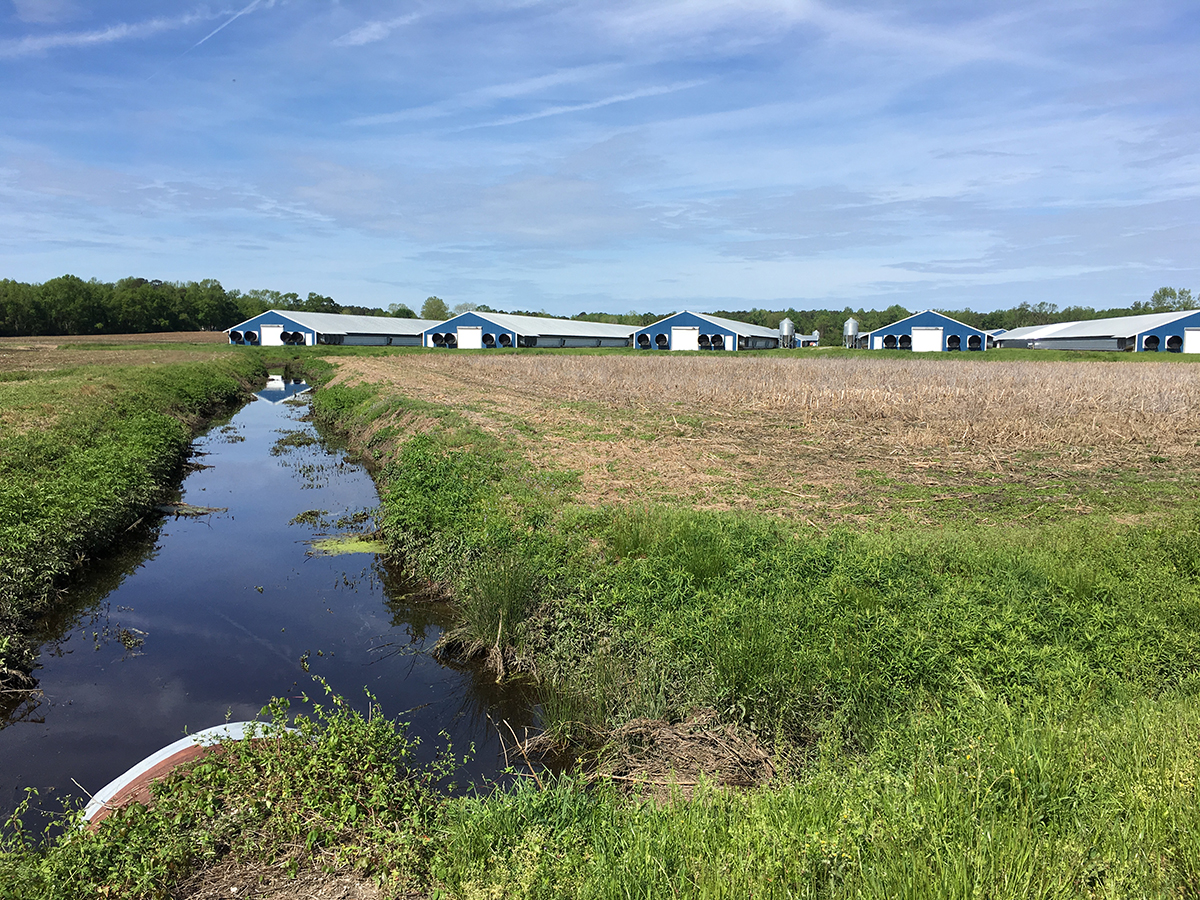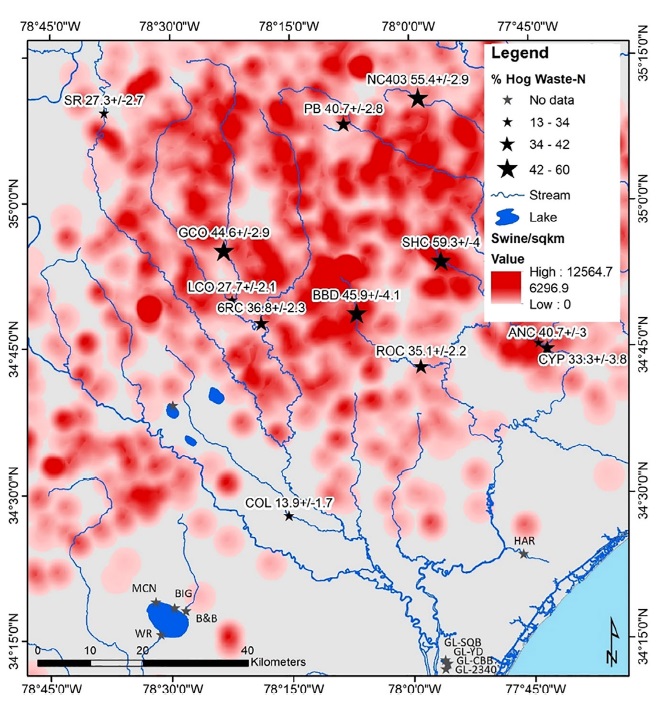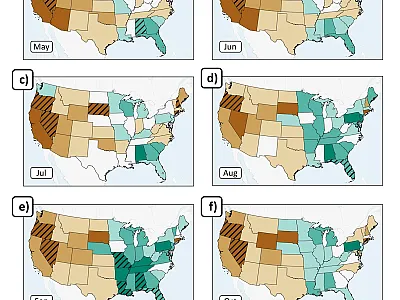Industrial animal agriculture causes widespread nutrient pollution in North Carolina

Eastern North Carolina has experienced widespread water quality degradation for decades due to elevated nutrient loading throughout the state. This is largely due to the high concentration of hog- and poultry-rearing facilities, particularly in the Cape Fear River watershed in the southeastern portion of the state.

To confirm the sources for this widespread nutrient pollution, researchers at the University of North Carolina–Wilmington sampled seston (particulate matter suspended in water), stream sediments, and aquatic macrophytes from throughout the Cape Fear River watershed and analyzed their stable nitrogen and carbon isotope contents. They also measured the isotopic signatures of a range of potential nutrient sources to the landscape, including hog waste, synthetic nitrogen fertilizer, and human wastewater. By applying a linear mixing model, they estimated the relative nutrient source contributions for each field sample. Overall, the isotopic signatures and statistical relationships pointed to poorly treated hog and poultry livestock waste, along with human waste in certain isolated areas as the likely sources for the elevated observed nutrient loads.
Moving forward, North Carolina’s animal agriculture industry warrants a stricter focus with regards to Coastal Plain water quality management, given its vast impacts on nutrient loading and water quality degradation.
Dig deeper
Chaffin, A. G., Cahoon, L. B., Mallin, M. A., Lane, C., & Mapes, C. (2025). Aquatic nitrogen source elucidation using stable isotope analysis in the North Carolina Coastal Plain. Journal of Environmental Quality. https://doi.org/10.1002/jeq2.20669
Text © . The authors. CC BY-NC-ND 4.0. Except where otherwise noted, images are subject to copyright. Any reuse without express permission from the copyright owner is prohibited.







